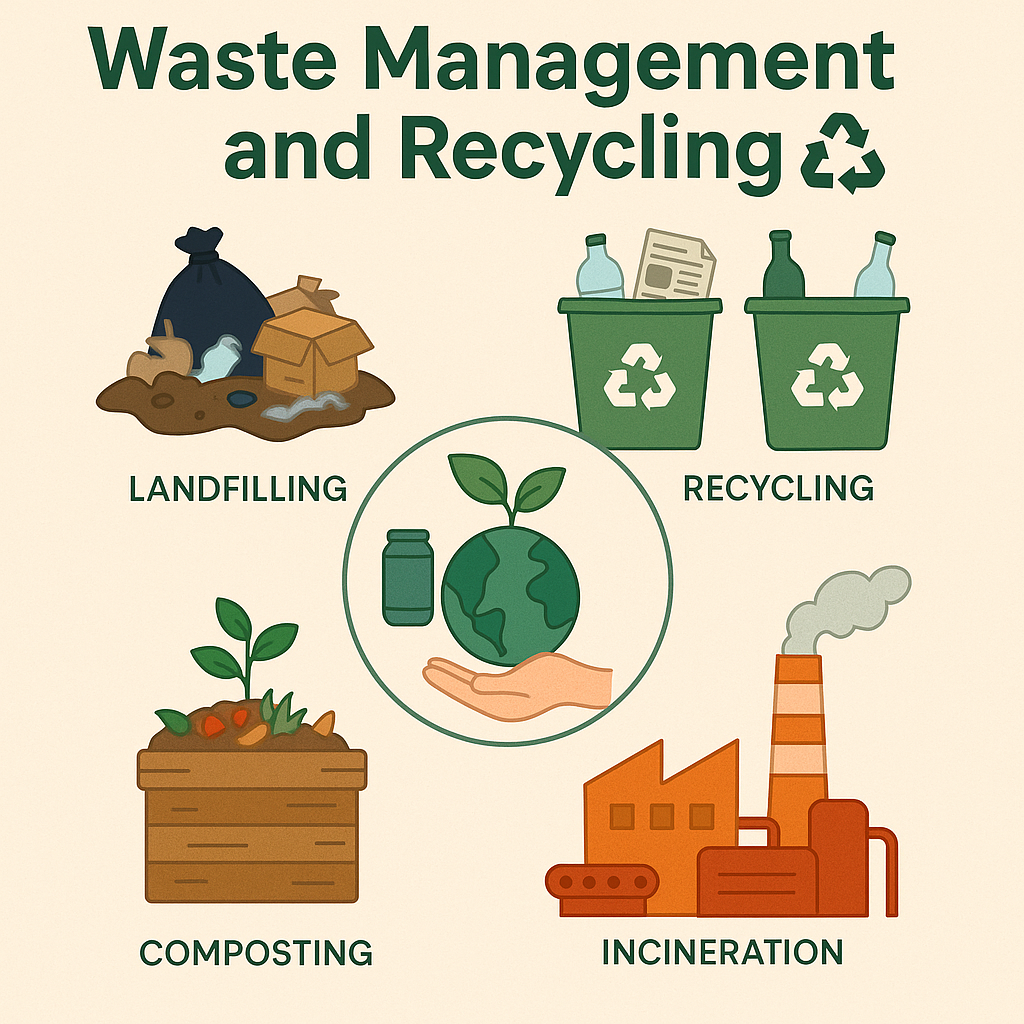Waste Management and Recycling
Waste Management and Recycling: A Step Towards a Cleaner Planet
Introduction: Waste management is a critical component of environmental conservation. With growing population and industrialization, the amount of waste produced globally is increasing at an alarming rate. Effective waste management and recycling not only reduce pollution but also conserve resources and energy.
Types of Waste:
- Organic Waste – food scraps, yard waste.
- Recyclable Waste – paper, glass, plastics, metals.
- Hazardous Waste – batteries, chemicals, electronic waste.
- Industrial Waste – construction debris, factory discharge.
What is Recycling?
Recycling involves converting waste materials into new, usable products. It helps in reducing the consumption of fresh raw materials, energy usage, air and water pollution, and greenhouse gas emissions.
Benefits of Recycling:
- Conserves natural resources.
- Saves energy.
- Reduces landfill waste.
- Promotes sustainability.
Waste Management Methods:
- Source Reduction – minimizing waste before it is created.
- Composting – natural process of recycling organic material.
- Landfilling – burying waste in land, though not eco-friendly.
- Incineration – burning waste to reduce volume.
- Recycling – reprocessing materials into new products.
How You Can Help:
- Separate waste at the source.
- Use reusable items over disposables.
- Educate others about recycling.
- Support policies that promote sustainable waste practices.
Conclusion:
Waste management and recycling are essential for maintaining environmental balance. By adopting eco-friendly habits and supporting green initiatives, every individual can contribute to a cleaner and healthier planet.
© 2025 Smart Study Academy | All Rights Reserved
